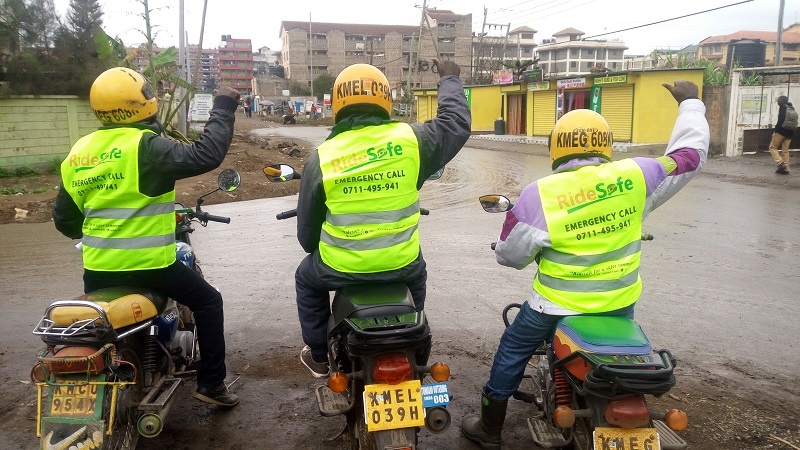Kenyan startup RideSafe is insuring motorcycle drivers to ensure they have access to quick, affordable medical care in the event of an accident, with the help of blockchain technology.
Launched last year, RideSafe is an emergency response solution that enables riders to access quick, affordable and quality first aid at the point of an accident, built on a decentralised blockchain application.
The startup has brought together a community of riders, first responders, passengers, well-wishers and investors to participate in building a network that allows them to access riding and health services, and rewards good behaviour.
Motorcycles are a big deal in Kenya, but also very dangerous. The Motorcycle Assemblers Association of Kenya (MAAK) says over 99 per cent of motorcycles in the country are used for public transport, yet road accidents are set to match HIV/AIDS as the highest cause of death in low-middle income countries by 2030.
Founder and chief executive officer (CEO) Asiimwe Benson Mugisha came up with the idea for RideSafe back in 2017.
“I worked at a medical centre and having to see what public motorcycle riders go through whenever they are brought in after an accident is saddening. You can see there was poor handling, delayed responses and no payment plans. All these contributed to permanent damage and death at times,” he told Disrupt Africa.
Mugisha and co-founder Jassy Elina started building a tech-driven solution to help mitigate what it had seen, and that became RideSafe. The platform enables a rider to distribute the cost of their care by allowing them to save small premiums of up to US$0.38 per week so they can care worth up to US$30 per visit.
The rider’s premiums are converted into tokens that are stored in an escrow, and can only be paid out to the first responder when specific deliverables have been met, all tracked transparently on the blockChain. RideSafe makes money from transactional charges on every transaction.
“Our competition are emergency services, who are quite pricey, and other health insurance products, who focus more on payments,” Mugisha said.
“We realised that the missing aspects were affordability and intervention time. We knew that to save a life time was the main aspect, and so RideSafe focused on building features that would help the rider to access first aid in the shortest time possible. To tackle the affordability we allowed them to make contributions that would be used to pay for their care.”
The startup, which raised US$100,000 in funding from æternity Ventures after taking part in the Bulgaria-based æternity Starfleet Incubator for blockchain startups and was one of 10 startups selected to pitch at the Africa Startup Summit in Rwanda in February, has seen promising adoption rates.
“Riders see the value of the product and are willing to be part of this community. We now have over 600 riders on our USSD platform who we will migrate to our smartphone application in the middle of this year,” said Mugisha.
This smartphone application, which is central to RideSafe’s commercial rollout plans after its beta period, will allow riders to sign up and start acquiring tokens to access all its services. Mugisha and his team hope to onboard 200,000 riders and 1,000 first responders in Kenya by the third quarter of 2020.
“Since we launched the USSD it has been tough to explain to the riders the sign-up process. We believe this will be solved when we launch our smartphone app, which has fewer steps for sign-up,” Mugisha said.
“Currently we are operating in Nairobi, but we will be moving to the other major cities by the end of the year. We are targeting the East African Community for mid-2020 and later on Africa at large.”


